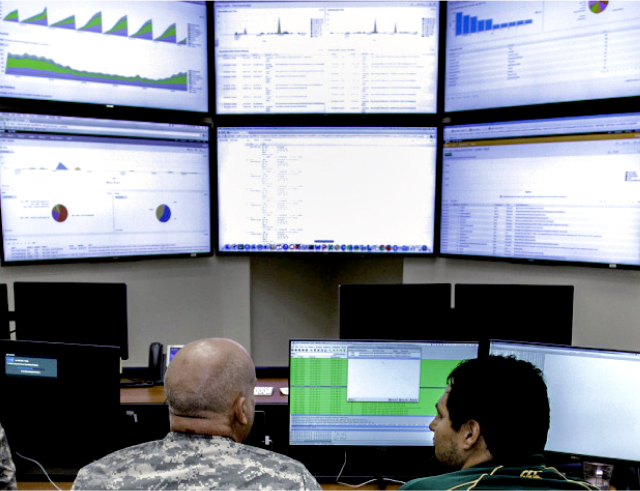ICL’s fundamental strength is Information Science, a discipline that investigates the properties and behavior of information, the forces governing the flow of information, and the means of processing information for optimum accessibility and usability. ICL has broad and deep capabilities across the data science hierarchy of needs and our key areas of research focus on systems that adapt to their operational environment, as well as scalable enterprise system modernization and transformation. Core research areas include (alphabetically): advanced computing systems, artificial intelligence and machine learning, communications, data analytics, decision support systems, electronic warfare, embedded software, enterprise applications, 5G/FutureG, health analytics and informatics, information science, interoperable data architectures, the intersection of cognitive performance and artificial intelligence, radio frequency (RF) propagation modeling, socio-technical systems, software-defined RF systems, spectrum analytics, STEM education, and trusted systems. ICL conducts research that solves complex problems for range of domains, including national security, health, intelligence, law enforcement and justice and economic impact for the state of Georgia.
ICL’s strategy to enable research has two components: integrate fundamental capabilities and innovative applications into our current major research activities; and strategically grow major application areas.
Integrate fundamental capabilities and innovative applications:
- Autonomous Adaptive Communications
- Advanced Computing
- Artificial Intelligence/Machine Learning
- Human-centered Information Science
- Information at the Edge
Strategic application areas:
- Decision Advantage
- Integrated machine and human decision-making
- Managing complexity across all scales: locations, timeframes, echelons; Joint All Domain Battle Management
- Design of information operations and decision processes
- Adaptive Systems
- Convergence of communications, computing, control, localization and sensing
- Delivering intelligent networks and adaptive spectrum operations for communications
- Heterogeneous device-edge-cloud AI architectures
- Acceleration of AI on dynamically distributed small data
- Adaptive system personalization
- Health Systems
- Health data standardization and harmonization
- Health system interoperability
- Large scale analytics of structured and unstructured data
- Technologies for health equity
- Decision support for clinical, quality, cost, safety, and public health use cases
- Digital Transformation and System Modernization
- Advanced analytics and AI-driven insights
- Digital workforce transformation
- Trust, interoperability, and data governance
- IoT sensors, mobile and edge computing
- Human Resilience
- Adaptive socio-technical systems
- Human-machine teaming
- Digital Resilience
- Tech-mediated psychological resilience
- AI Literacy


















